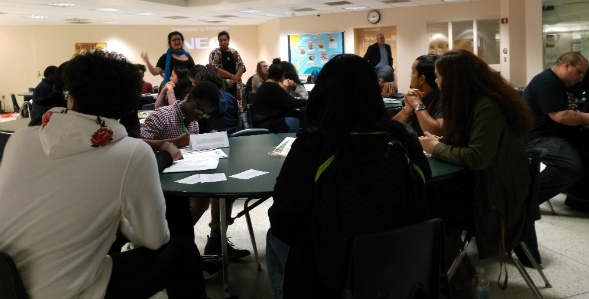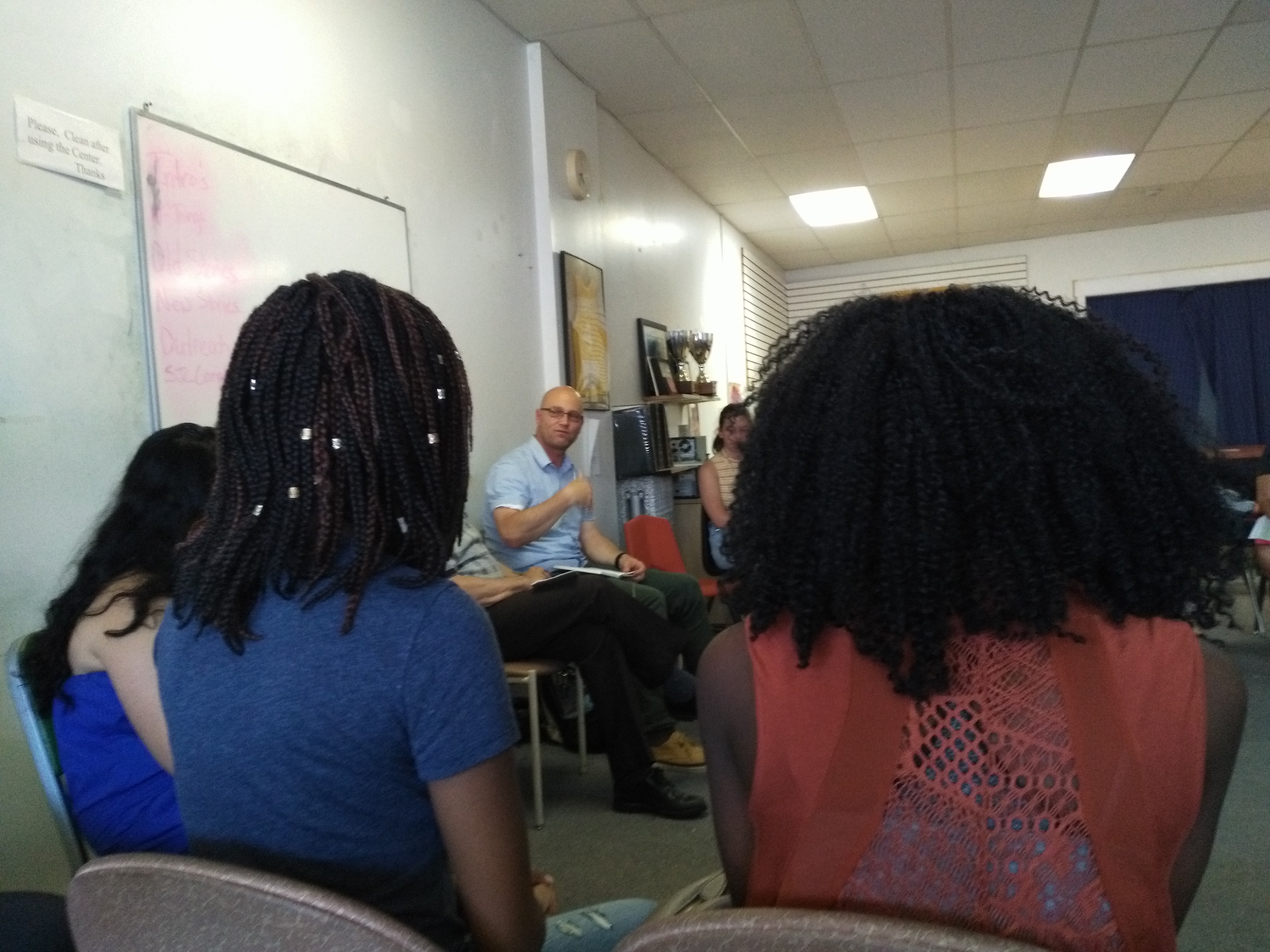WORCESTER, Mass. – More than 100 people attended a community input meeting at Claremont Academy in the city’s Main South neighborhood to discuss what they think Worcester Public Schools should look like in the near future.
The event was hosted by the Worcester Education Collaborative (WEC) and organized by students, parents, and community activists as the final of several forums designed to gather qualitative data to help shape a community-created strategic plan for the school system – the first in more than a quarter century.
While numerous viewpoints on varied issues were shared, it appeared that the overwhelming majority of those in attendance were highly concerned about race and racism in the school system. Alexizendria Link, a teacher at North High School and union activist, called for the strategic plan to specifically address systemic racism in the schools. Other participants agreed, saying that it is a problem that has persisted for decades.
The issue of race mixed with students rights, as many tables noted as a problem that the diversity of the student body is not reflected in the pool of teachers. One person argued that, even with the best teachers, a student in Worcester could have teachers from kindergarten through high school who never look like him or her – sending a tacit message of inferiority.
“You don’t listen to us, you don’t respect us. How then can we respect you?” South High Community School student Shirley Acero said to applause, voicing a widespread sense among students that their needs are overlooked by many teachers and administrators. Her comments drew applause from most of the room, including from many of the teachers and administrators.
“We don’t want chaos,” Acero said. “We want compromise.”
Students have often voiced frustrations over school policies – including a ban on hoodies in some high schools and a system-wide ban on mobile phones. Students, as well as parents, teachers, and community members, noted the disproportionate suspension rates of black and Hispanic students as a problem in need of an immediate solution, and which contributes to the notorious school-to-prison pipeline.
Conversations were wide-ranging and deep. Three elected officials attended – City Council member Sarai Rivera and school committee members Dante Comparetto and John Monfredo – as well as Education Association of Worcester President Roger Nugent and schools superintendent Maureen Binienda. None of them spoke, however, as the program was kept purposefully brief, so that small group discussions could take place for more than an hour.
A teacher who did not want to be named was pleased with Binienda’s presence, saying, “It must be hard to have all these people criticizing the organization you run, but she seems happy to listen.” The teacher described himself as “generally an opponent” of the administration. Several teachers and students at South High Community School, where Binienda was principal prior to her promotion, said that she had been known to genuinely care about students and had been able to create a strong sense of community there.
For the small group discussions, the attendees were divided into groups of about eight people each, and were assigned based on their relationship to the school system: there were groups for parents, students, teachers, community members, and even a separate table for administrators. Each group had a facilitator and a note taker. The latter position was important, because the note taker’s job was to keep a detailed (but anonymous) log of what was said, so that this qualitative data could be used to develop the strategic plan.
The process, initiated by WEC and the Worcester Regional Research Bureau, has been driven by a 50-member advisory committee, which is more than one-third people of color and is composed of people from various backgrounds, including WPS alumni, parents, and teachers’ representatives. Out of that committee, a smaller coordinating committee was created.
Earlier in the process, WEC hosted three other community forums, the most recent of which took place at Doherty High School in December, as well as 15 focus groups, each composed entirely of WPS students and parents. The focus groups were aimed specifically at hearing the points of view of those who are traditionally overlooked. To accomplish this, the organizers worked with community organizations, including African Community Empowerment, the Latino Education Institute, the Worcester Youth Center, and others.
The results of this meeting, as well as the previous forums and focus groups, as well as quantitative data, will be used to create the strategic plan. When it is created, the plan will be presented to the public and to the school committee.
According to WEC Executive Director Jennifer Carey, even once the plan is enacted, it will require community advocacy. As most of the small groups at the Claremont Academy forum noted, perhaps the biggest cause of problems in the public school system in Worcester – and all of the commonwealth’s non-Boston urban centers – is a lack of funding, and the community will have to continue to fight for that.



